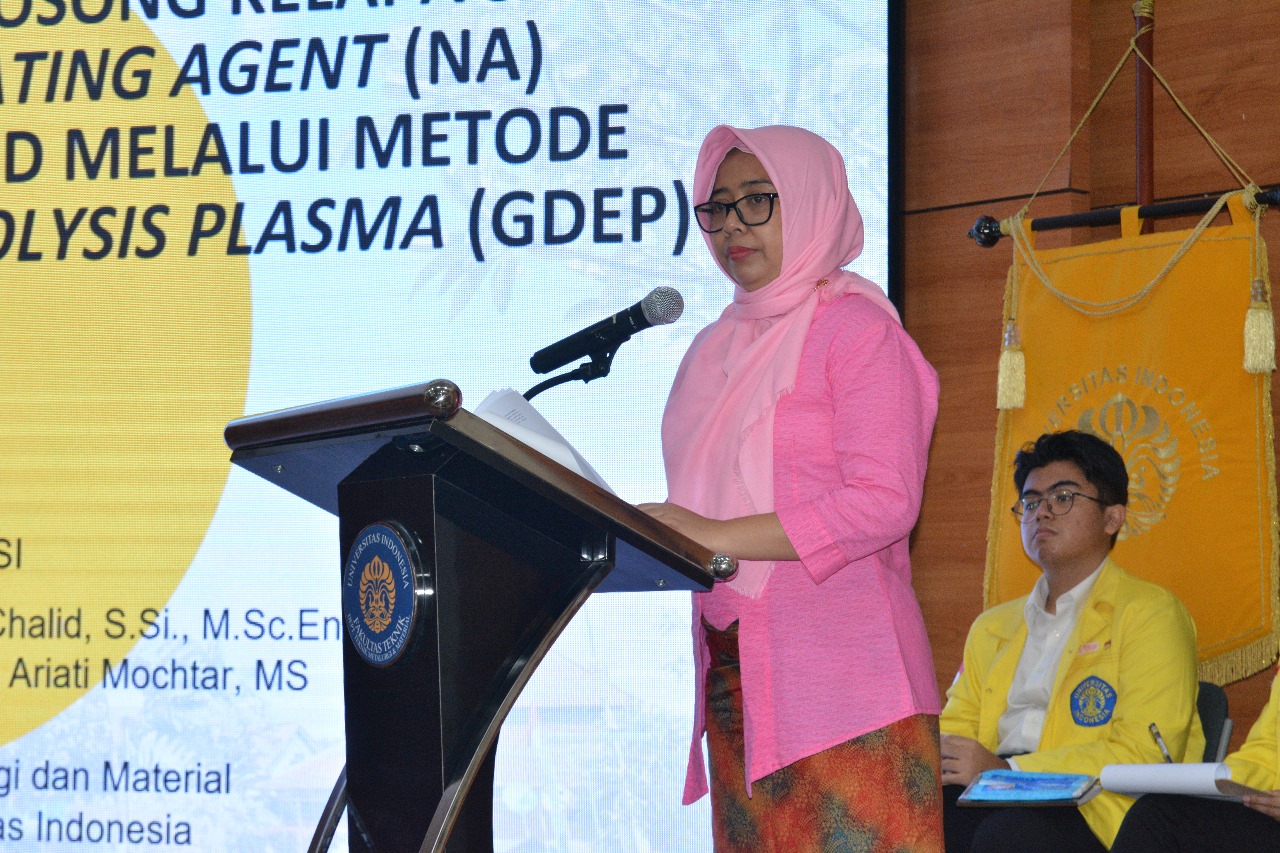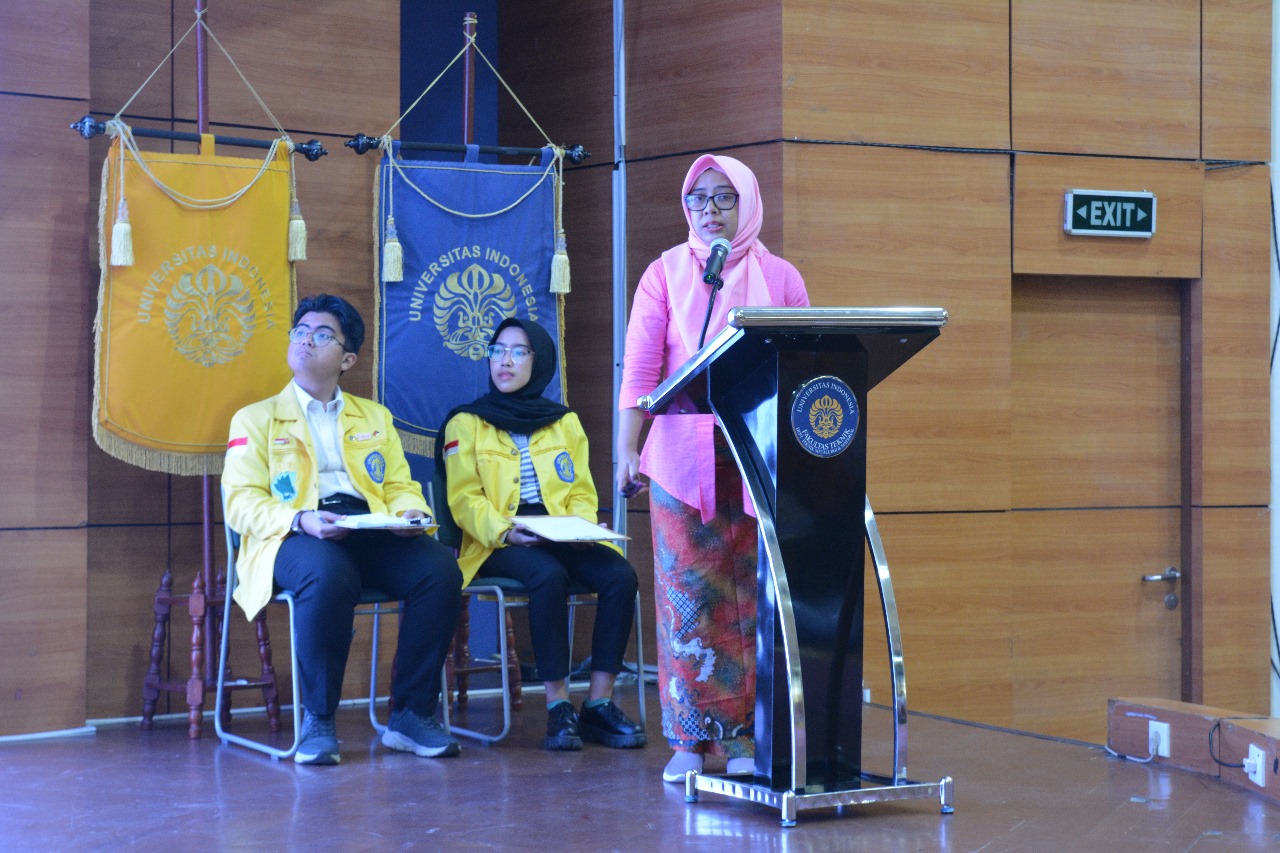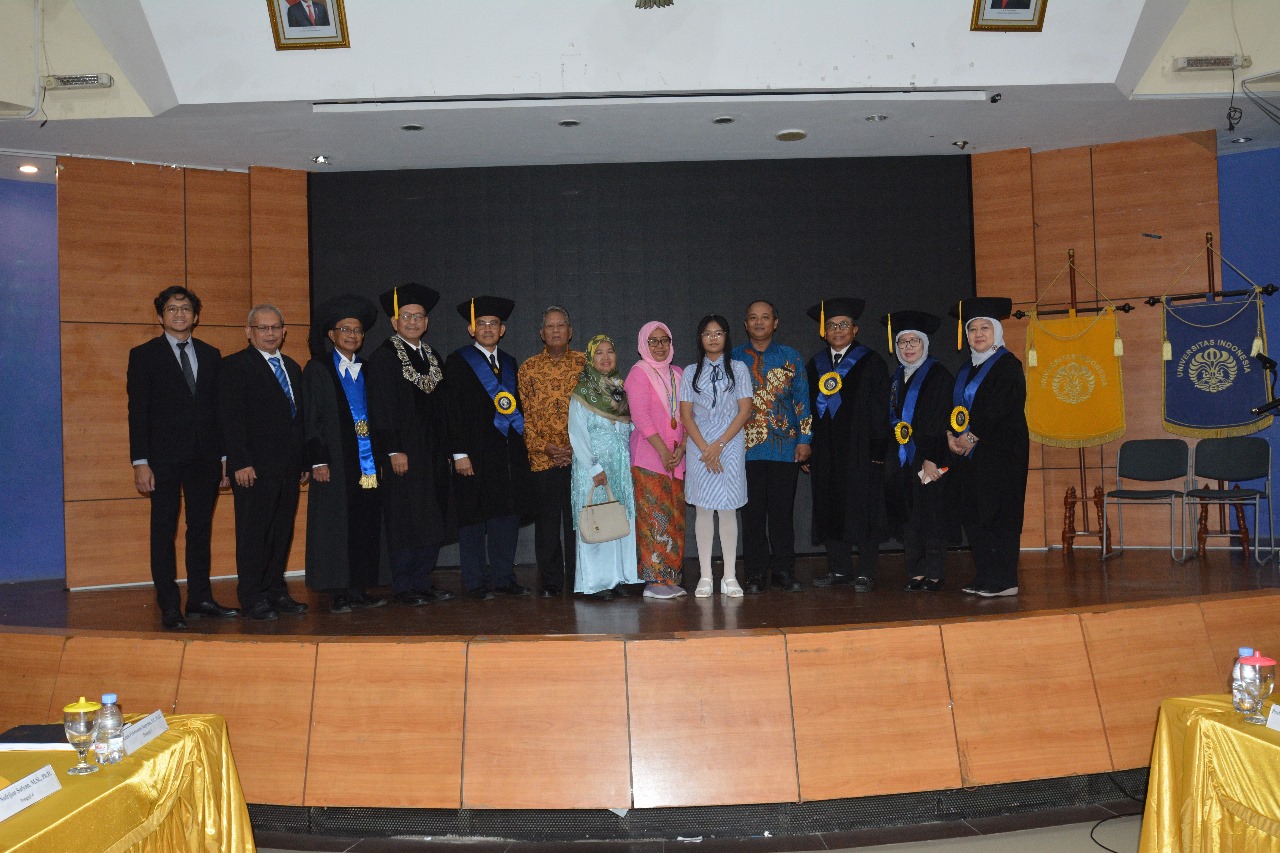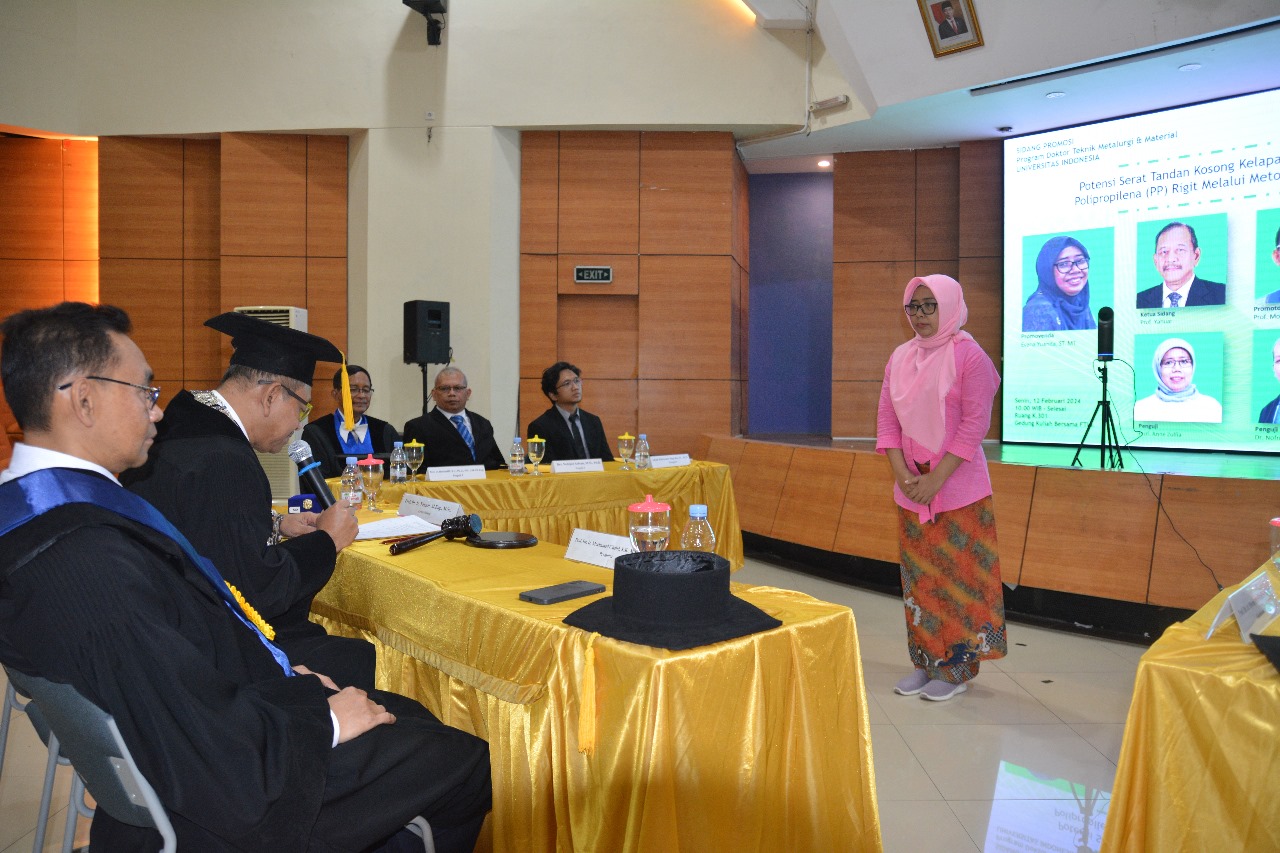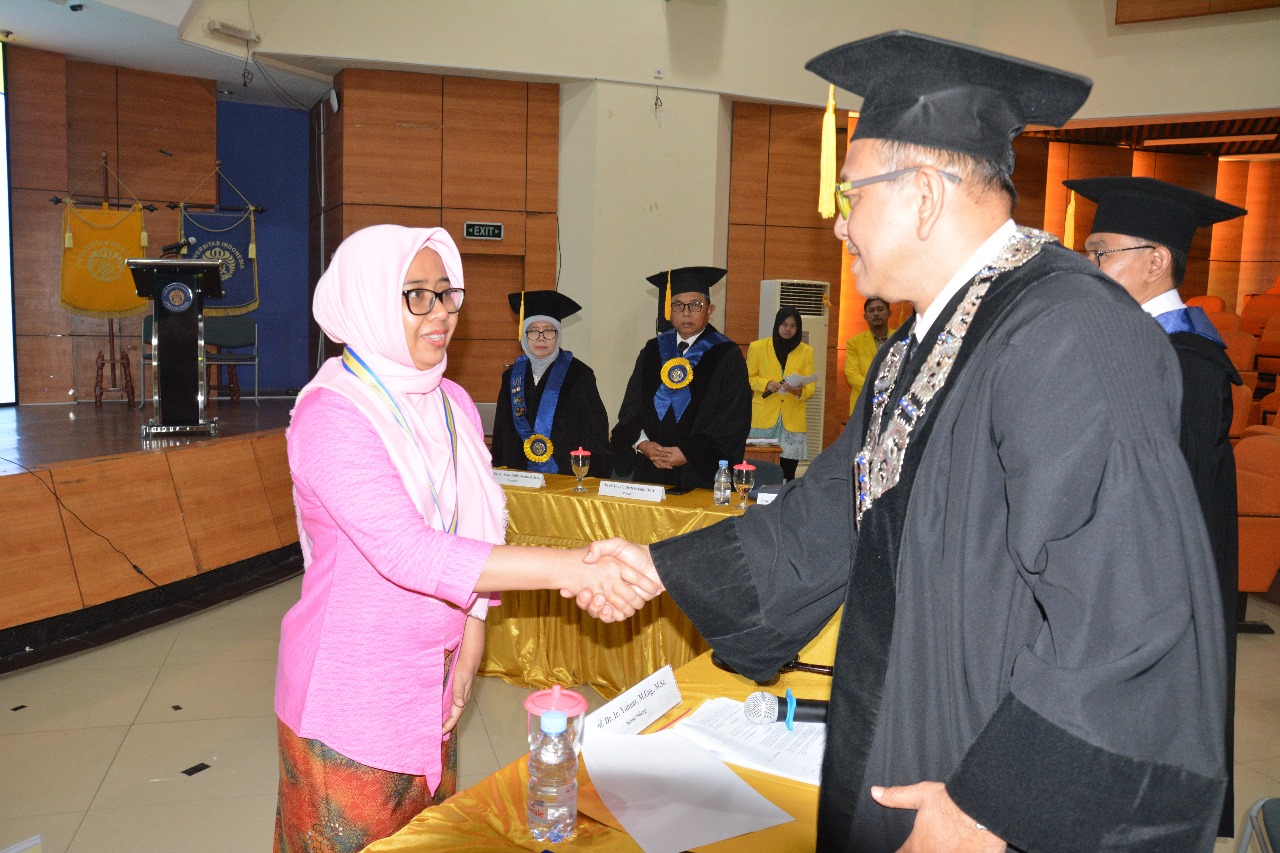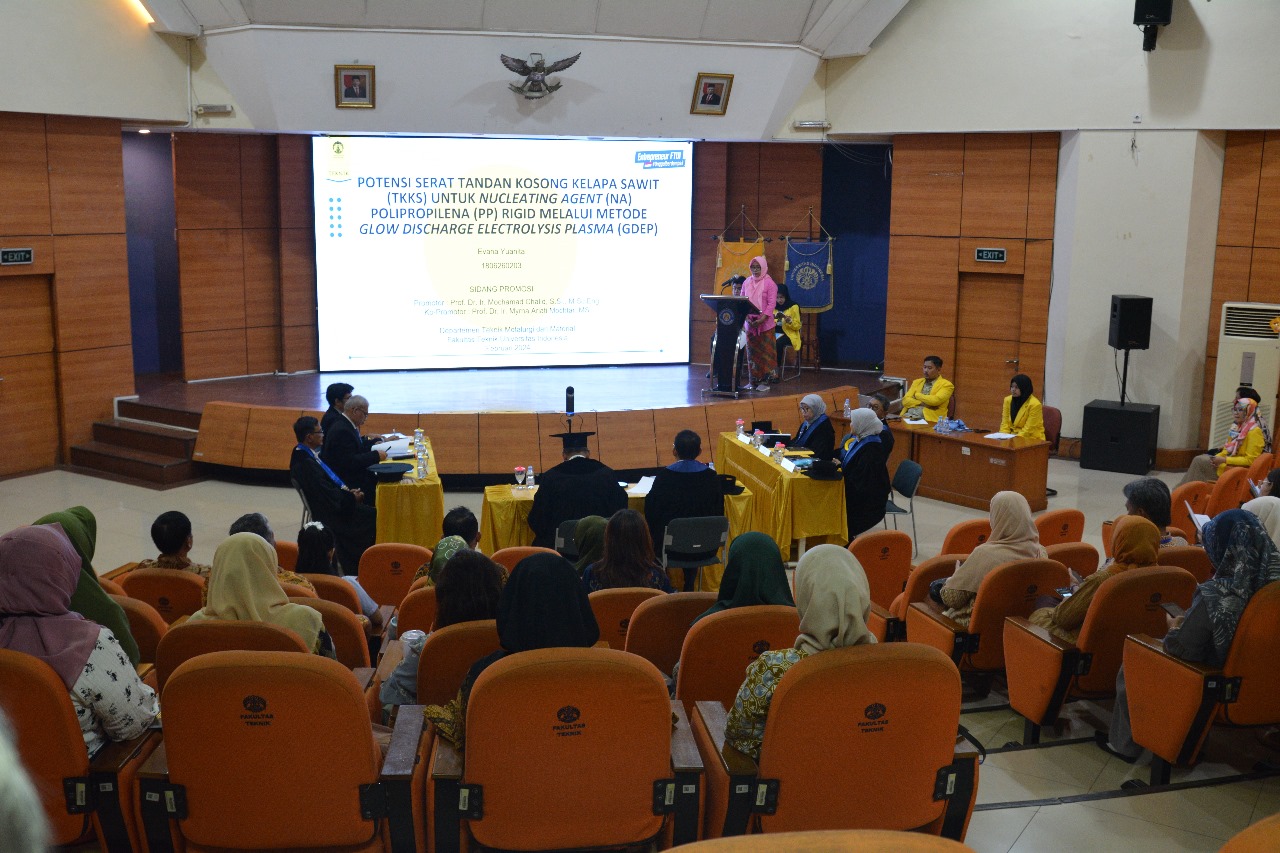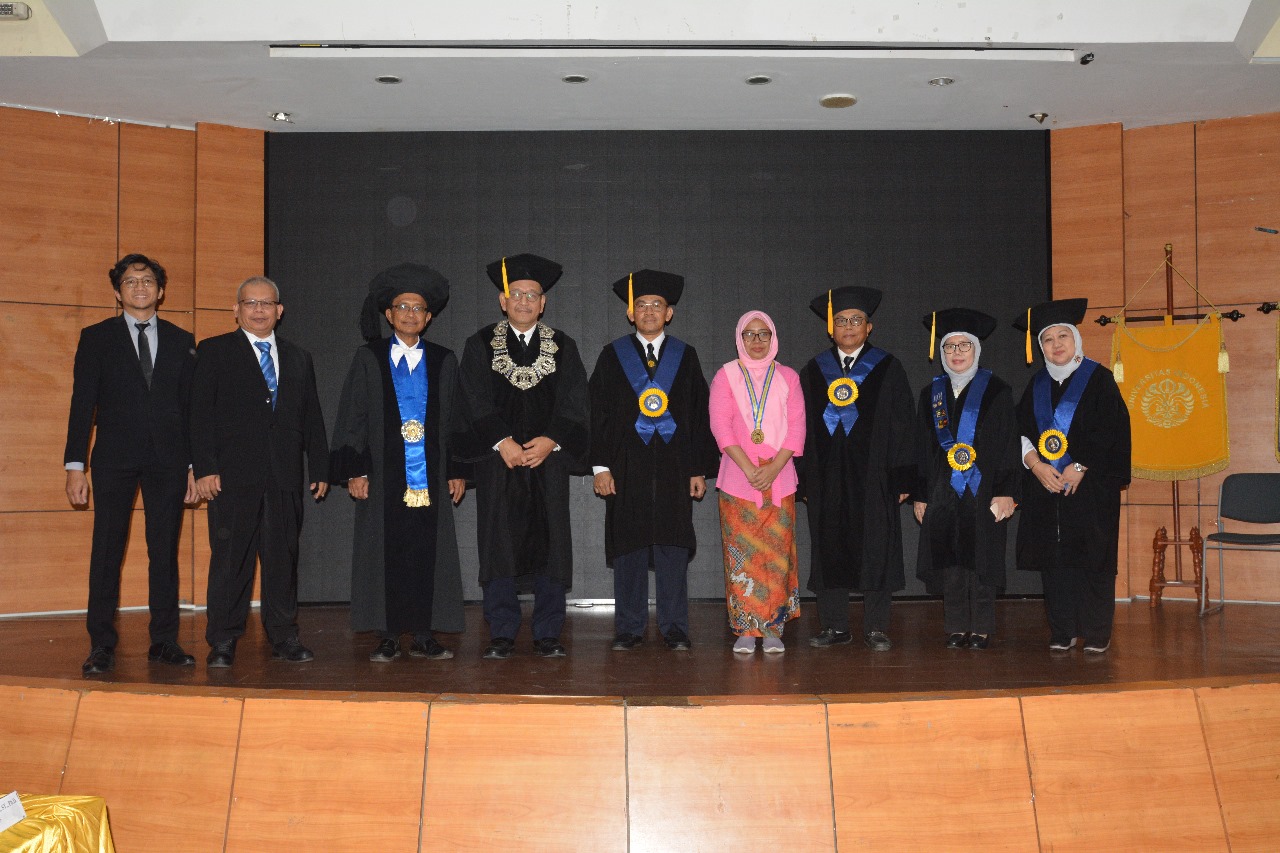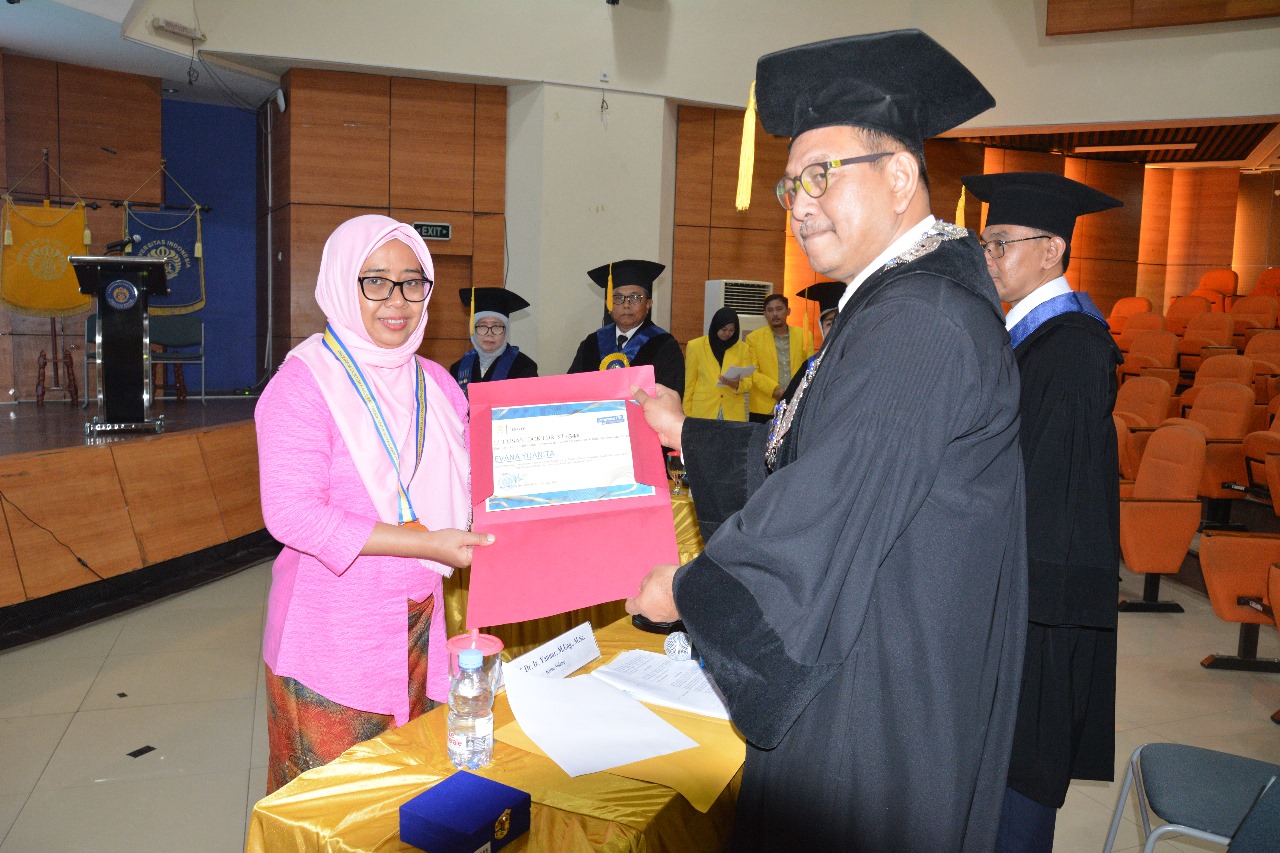Evana Yuanita, a doctoral student in the Department of Metallurgical and Materials Engineering at FTUI, researched fibres from oil palm empty fruit bunches. This research is presented in her dissertation titled “Potential of Oil Palm Empty Fruit Bunch (OPEFB) Fiber for Nucleating Agent (NA) of Rigid Polypropylene (PP) Through Glow Discharge Electrolysis Plasma Method” and was presented at the open doctoral promotion session held on Monday (12/02/2024) at the K301 Auditorium, FTUI.
“Plastic has become a crucial need in recent decades. This is because of the strong, lightweight, and inexpensive nature of plastics. These characteristics make plastic a widely used product that quickly permeates all aspects of human life. One type of plastic that has been used for many years and has experienced rapid and important development in today’s life is polypropylene (PP). PP is a synthetic polymer made from the fractional distillation of crude oil. The polymerization reaction on propylene produces PP, which is a type of thermoplastic polymer with non-polar characteristics,” explained Evana.
The utilization of natural fibres as raw material for polymer additive products has various advantages compared to similar products currently available in the market. One natural fibre that can utilize cellulose as raw material for NA is waste from oil palm plantations. In the processing of fresh fruit bunches (FFB) into crude palm oil (CPO), approximately 45% of the processed fresh fruit will eventually turn into solid waste in the form of shells, fibres, and oil palm empty fruit bunches (OPEFB). Half of this solid waste is OPEFB. Oil palm plantations in Indonesia are managed under PTPN as a Plantation Holding and are scattered across the islands of Sumatra, Java, Kalimantan, and Sulawesi. This indicates the significant potential for utilizing OPEFB solid waste.
Evana mentioned that the reason for choosing OPEFB Fiber material is because it has many advantages. “First, OPEFB has a relatively cheap price, even in farming or plantation locations, it is biomass that has not been utilized well, mostly dumped as fertilizer for oil palm plants with the problem of a quite disturbing rotten aroma and has not yet added significant value. Second, the utilization of these fibres can have a positive impact on the environment by minimizing waste in farming or plantation locations. Third, fibres are renewable materials, and this type of fibre is abundant in Indonesia.”
The challenges in making NA as a polymer additive from the cellulose of Indonesian natural fibre for rigid plastic industries are, firstly, how to develop natural fibres into polymer additives as NAs that can be mass-produced by the industry. Secondly, NA from cellulose can be used as an additive in the process of making polymers, especially rigid plastics, to accelerate the process and reduce production costs.
FTUI Dean, Prof. Dr. Ir. Heri Hermansyah, S.T., M.Eng., IPU., on another occasion, stated, “In Indonesia, polymer additive materials, especially NAs, are still imported, so further development of these materials is needed by utilizing Indonesian natural fibres, one of which is the abundant OPEFB that has a high cellulose content and has not yet maximized its added value.”
This dissertation on the potential of OPEFB natural fibres successfully led Evana Yuanita to obtain a doctorate in the field of Metallurgical and Materials Engineering with a predicate of very satisfactory, GPA of 4.00. Evana is recorded as the 69th doctoral graduate of the Department of Metallurgical and Materials Engineering and the 541st doctoral graduate of the Faculty of Engineering, University of Indonesia. The Promotion Session was led by Prof. Ir. Yanuar, M.Eng., M.Sc., with Prof. Dr. Mochamad Chalid, S.Si., M.Sc.Eng. as the main advisor and Prof. Dr. Ir. Myrna Ariati Mochtar, M.S. as the co-advisor. Meanwhile, the examination committee consisted of Prof. Dr. Ir. Dedi Priadi, DEA.; Prof. Dr. Ir. Anne Zulfia Syahrial, M.Sc.; Prof. Dr. Ir. Rochmadi SU, Ph.D., IPU, ASEAN; Nofrijon Sofyan, Ph.D.; and Adam Febriyanto Nugraha, S.T., Ph.D.
***
Public Communication Office
Faculty of Engineering, University of Indonesia

